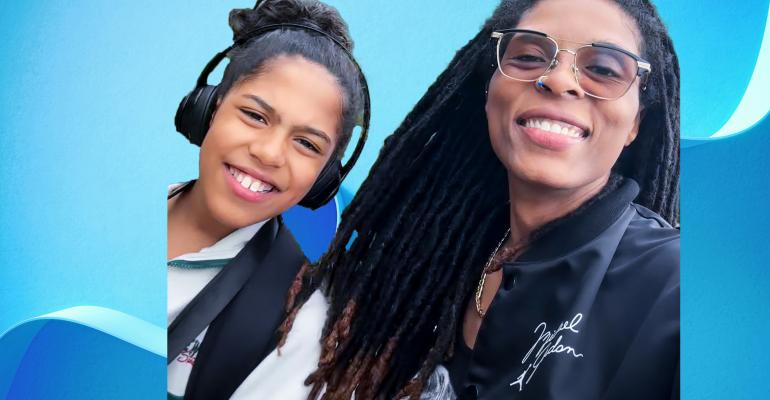Alexia Clayborne
Director of Inclusion and Accessibility, Marketing and Consumer Business
Microsoft
For creating the Microsoft Events D&I and Accessibility Partner Pass Initiative that provides a first-of-its-kind, no-cost-to-the-attendee pass for members of underrepresented communities
Microsoft’s global diversity and inclusion team defines equity as: “The full and equal access to opportunities, power, and resources so that all people achieve their full potential and thrive.” Access to meetings has been a growing part of that commitment, with the launch of the Microsoft Events D&I and Accessibility Partner Pass Initiative at the company’s Ignite 2022 conference, an annual event for software developers and IT professionals.
“Not everyone can pay almost $2,000 a ticket,” to attend an in-person event, says Alexia Clayborne, the force behind the new program. In addition to providing complimentary conference passes, the Partner Pass covered travel, accommodations, and meals at Ignite 2022 for about 35 people from seven organizations. This gave full access to attendees who otherwise would not be on site.
“The financial resources of these nonprofit organizations typically are not similar to the for-profit space. That’s why we’re doing this work, because there are inequities. But the opportunity for impact—what the nonprofit space can provide as partners—is massive, and what Microsoft can provide to the nonprofit space is also massive.”
Clayborne, Microsoft’s director of inclusion and accessibility, marketing and consumer business, says that complimentary event passes aren’t unusual; the company regularly offers them to the media, government-aligned attendees, and other groups. “But creating a pass for community-engagement objectives, from my understanding, is unique,” she notes.
The Partner Pass program is phase one of a three-phase Events Community Engagement Initiative. Later phases will aim to further develop business relationships, draw from other geographic regions, and build an “ecosystem” around particular communities, says Clayborne.
At Ignite 2022, she worked with African-American-focused nonprofits to model the program. It’s a community that aligns with her personal passion and life experience, but also one that “Microsoft brand data has clearly shown we need more representation of across the country, so it made perfect sense,” she explains.
Among the organizations that received attendee passes to Ignite were Black Girls CODE, which works to provide African-American and South African girls with computer programming education; 1687 Club, which is digitizing historic and iconic American and international images for preservation; and the Withers Collection and Gallery, which is archiving and sharing the work of African-American photojournalist Dr. Ernest C. Withers.
“Although we’ve prioritized African-American and African diaspora to model this program, we’ll continue to expand. This is not driven by ethnicity or gender alone. We want to prioritize those who are most in need,” Clayborne says. “For instance, a key demographic for Microsoft and for my team is the rural community, which as an ecosystem includes various ethnicities, genders, and other orientations.”
Clayborne emphasizes that the event community-engagement model can have an outsized impact on both the invited and host organizations. She notes that at the Microsoft Build event in May, there were only 22 partners in the community engagement program, “but they had a direct network reach of over 200 million community members across the globe.”
Clayborne’s advice: “Take the time to genuinely get to know the communities you serve to ensure that you have that authentic trust and representation within these communities. … In return, what you get is so much more access to potential customers, employees, suppliers, and partners. But beyond that, the possibilities of organic marketing partnerships that can really bring their networks into the fold are limitless.”





